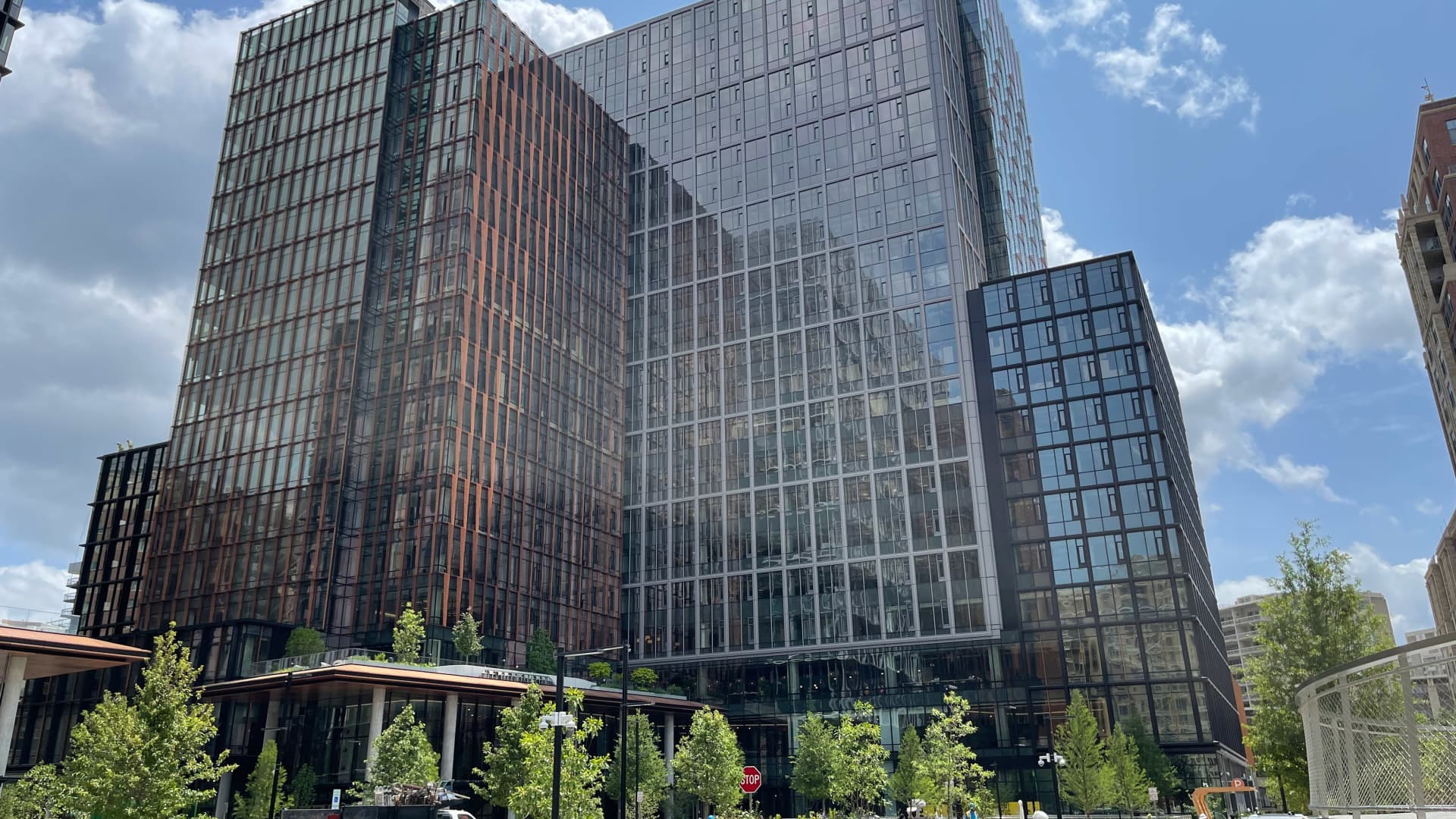Products You May Like
Starting next week, the first of 8,000 Amazon employees will begin moving into one of two brand new 22-story towers in Arlington, Virginia. Move-in is expected to be complete by the end of the summer. Amazon’s HQ2, formally called Metropolitan Park, has many features that contribute toward the company’s goal of reaching net zero carbon emissions across all operations by 2040.
The buildings will run with no operational carbon emissions and will be powered by 100% renewable energy from a nearby solar farm.
“We eliminated fossil fuels from this building, which is huge and really new for a lot of developments, particularly of this size,” said Kara Hurst, Amazon’s vice president of worldwide sustainability.
The 2.1 million square feet of space includes some of the newest clean energy technology and sustainability features. An enormous meeting room has a mass timber ceiling made from 70-foot laminated planks of sustainable material. The floor is made of concrete from Carbon Cure, a clean cement company funded by Amazon’s Climate Pledge Fund.
There are 3,000 tinted glass windows for cooling, and red/green lights by the side of the windows that tell workers when is a good time to open those windows. The building is also using special cooling technology that helps save about 7 and a half million gallons of water per year. That’s more water than is needed to fill the Lincoln Memorial reflecting pool.
The heating and cooling systems operate based on need, meaning the ventilation and temperatures will change depending on occupancy. There are also advanced energy metering systems in the building to help evaluate future improvements as the building is occupied and teams use the space.
“I think it’s incredibly important for a company like Amazon to demonstrate leadership and sustainability and to be out there to talk about where we’re testing and trialing things, to also send demand signals to the market that these are products and services that we want,” said Hurst. “We want to see the innovation in building materials. We want to see the innovation in construction equipment. We want to see it in how we’re incorporating that and we want that to go at scale, one for cost parity, but also for availability for everyone.”
Hurst wouldn’t say how much the sustainability features increased the cost of the development. Amazon officials said only that some things were found to be cost-neutral, like the low-carbon concrete.
“Other choices were about long term value like our water conservation measures. Sustainability also goes beyond utility cost savings decisions,” the officials said.
The Development was designed in heavy consultation with the surrounding community. The dog parks and a childcare center in the complex are open to surrounding residents. There is also a rooftop vegetable garden on the new tower now opening that is not for employees — the food produced instead will be distributed to local community organizations through non-profits.
However, there are still plenty of amenities for the 8,000 employees, who Hurst says will be in the office at least three days a week.
“We’re still committed to all the hiring goals that we set out. So we’ll continue on that path but really over the next decade,” said Hurst.
As for the second phase of HQ2 offices that was recently delayed, Hurst wouldn’t give a time frame but said Amazon is in the pre-construction phase and still committed to it.
